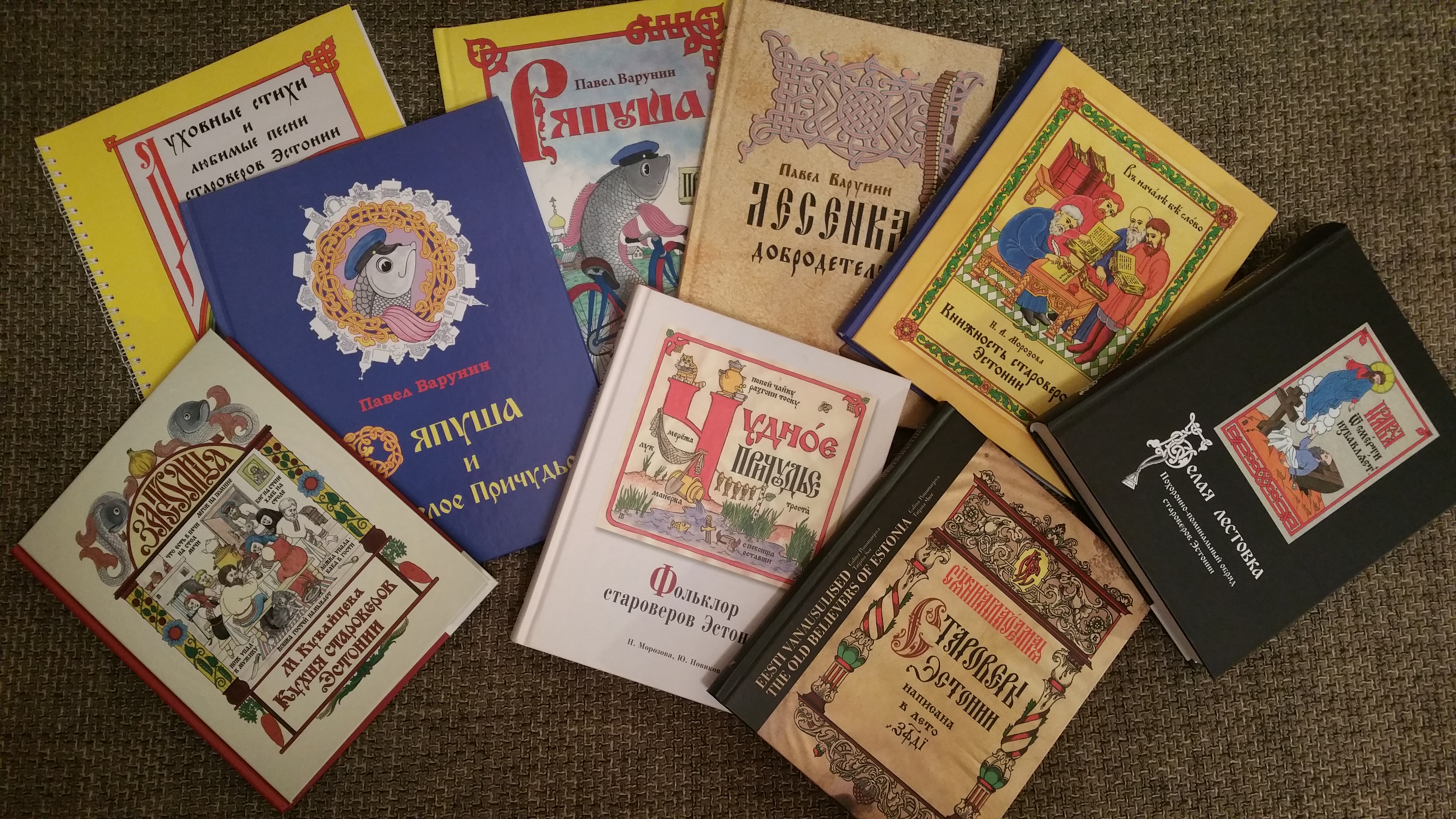
The NPO Estonian Old Believers Culture and Development Society aims to develop the cultural life of Old Believers and preserve and pass on their traditions.
One of its main activities is compiling written records of cultural heritage in cooperation with researchers from a range of institutions, with whom materials are collected and studied. The results of such studies then appear in print.
To date the society has published 12 books based on the cultural history of the Old Believers, some of which (‘Isevärki Peipsiveer’, ‘Written Heritage of the Old Believers’ and “Let’s Set the Table! The Food of the Old Believers”) have been published in Estonian and two of which (‘Estonian Old Believers’ and the brochure ‘Russian Old Believers in Estonia’) have been published in three languages.
Two fairytales written in the dialect of the Old Believers have also been published (‘Ряпуша. Причудская сказка с причудами’ and ‘Ряпушаи Белое Причудье’), as have two children’s books (‘Lesenka dobrodeteli’ and ‘Lukovadje’), a children’s colouring book (‘Лицевая азбука’) and a book and poetry collection (‘Belaja lestovka’: The Spiritual Verses and Favourite Songs of Estonian Old Believers).
Each year the society produces a unique Old Believers calendar illustrated in the ‘lubok’ style found only among the Old Believers.
The society’s partners include such Estonian cultural associations as MTÜ Piiri Peal (NPO On The Border) and Eestimaa Rahvuste Ühendus MTÜ (NPO Association of Peoples of Estonia) and such research and cultural associations as the Chair of Russian Language of the University of Tartu, Tartu City Library, Narva City Centre Library, the Estonian Open Air Museum, the Russian Museum and Narva Museum.
Working with its partners, the society has put on concerts, exhibitions and book presentations in both Russian and Estonian.
It organises a summer retreat for Old Believer youngsters in Peipsiääre municipality to give them the chance to return to their roots and appreciate their role in passing their culture on to future generations.
